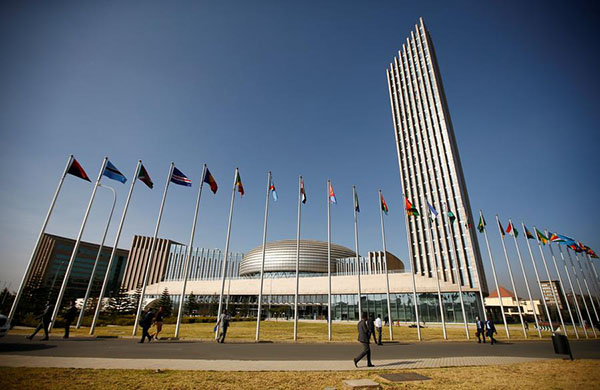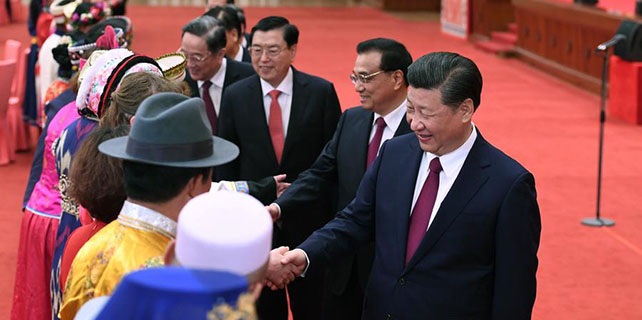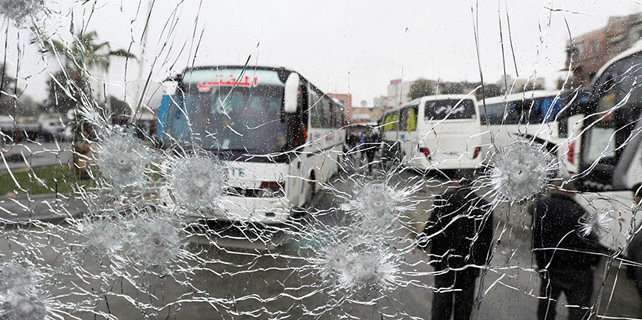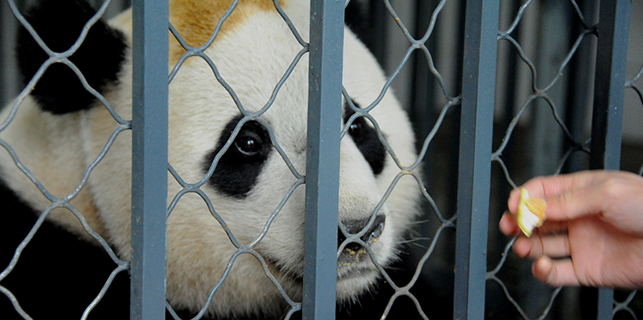Pan-African Parliament comes up with resolutions to advance continent
 |
|
A general view shows the headquarters of the African Union (AU) building in Ethiopia's capital Addis Ababa, January 29, 2017. [Photo/Agencies] |
JOHANNESBURG - The Pan-African Parliament (PAP) ended their 10-day robust discussions on Saturday with various resolutions to advance the continent.
The African Union (AU)'s legislative body had deliberated various issues since March 2 in Johannesburg. PAP and the Nairobi-based Pan African Climate Justice Alliance (PACJA) decided to initiate a process to have AU members adopt integrated climate-related legislation. PAP also agreed to domesticate the Paris Agreement on Climate Change adopted in 2015.
"We want to have a unified legislation on climate change as a continent to lessen the impact of climate change and PAP will lead that process," PAP Vice President Bernadette Lahai told Xinhua.
Lahai said they also agreed to ensure youths' role in shaping the future of the continent. African youths will meet later this year to discuss various issues like immigration, peace and security.
She said PAP, PACJA and the Pan-African Parliamentarians' Network on Climate Change (PAPNCC) will meet to devise a policy and legislation on climate change.
PAP also called on African countries to combat gender-based violence through education.
Hasna Houmed Bilil, chairperson of PAP's Permanent Committee on Gender, Family, Youth and People with Disability, said some governments have not shown any political will to carry out regulations and tackle abuse against women.
"The parliament has an important role in safeguarding the implementation of the reforms and laws," Bilil said.
PAP called on its members to establish systemic capacity building at the institutional level in order to understand and champion gender issues. The parliament also asked for a repeal of the laws that discriminate against women.
Moreover, PAP called for integrated legislation to fight an increase of electronic waste. PAP said that children in some African countries work in hazardous places (e-waste dumps) where they are exposed to the dangers of the effluent and fumes.
African parliamentarians were also resolved to promote greater regional and continental integration by stepping up the pace of introducing a common passport that will allow visa-free travel to member states.
PAP had in the past asked African governments to adopt and ratify a PAP protocol to grant the legislative body relevant legislative powers. However, the process of ratifying the PAP protocol has been slow, said PAP President Roger Nkodo Dang.
Dang said that it is a grave concern for the continental parliament that some three years after the AU adopted PAP's new protocol, the ratification process remains slow in African member countries.
Currently, PAP is unable to play its expected pivotal role in promoting Africa's integration and steering the social, political and economic development of the continent since AU members have failed to ratify the protocol.
PAP needs 28 member states to ratify its protocol but only 14 out of the 54 AU members have done so.
The African parliamentarians also discussed how to combat terrorism, promote intra-Africa trade and security, as well as address illicit financial outflows.









